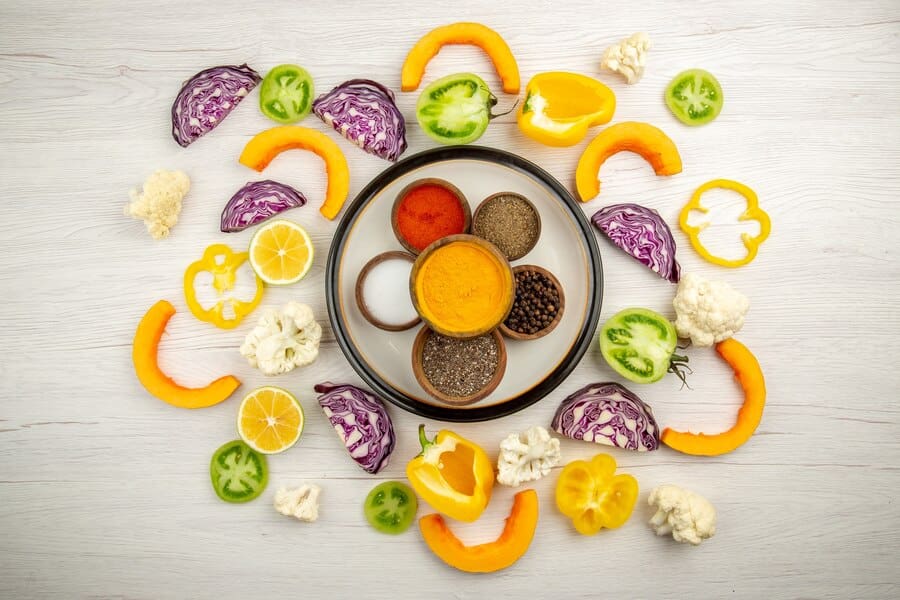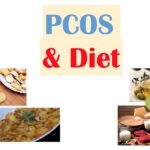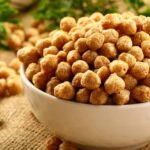Best Diet for Hypothyroidism: Foods to Eat, Foods to Avoid
Best Diet for Hypothyroidism: Foods to Eat, Foods to Avoid – Hypothyroidism is a common endocrine disorder where the thyroid gland dose does not produce enough thyroid hormones. These hormones are crucial in regulating metabolism and energy production in the body. Managing hypothyroidism often involves a combination of medical treatment and lifestyle changes, including dietary modification. This blog will explore the concept of the Best Diet for Hypothyroidism: Foods to Eat and Foods to Avoid to support thyroid health and overall well-being.

There is no miracle diet for hypothyroidism. But some foods, combined with the right medical treatment, can help keep your thyroid running as it should. Here are some of the best foods to eat and some you should skip.
What is Hypothyroidism?
1. The Thyroid Gland and Its Function: The thyroid gland is a butterfly-shaped organ situated in the front of the neck. It produces two primary hormones, thyroxine (T4) and triiodothyronine (T3), which regulate various physiological functions including metabolism, body temperature, and heart rate. In hypothyroidism, the thyroid gland does not produce enough of these hormones, causing various physiological processes to slow down.
2. Symptoms of Hypothyroidism: Common symptoms of hypothyroidism include fatigue, weight gain, sensitivity to cold, dry skin, hair fall, constipation, and muscle weakness. Hypothyroidism can also cause mood swings, depression, and cognitive decline in its sufferers.
Foods to eat if you have Hypothyroidism
Here are some foods to avoid if you have hypothyroidism:-
1. Eggs
This is rich in white protein, which contributes to a healthy metabolism. Eggs are full of protein, vitamins, and minerals including iodine and selenium you should not skip them. There are about 6 grams of protein in a large egg and about half of that protein is in the yolk.
2. Non-starchy vegetables
Choose nutrient-rich options such as spinach, kale, cauliflower, broccoli, bell peppers, zucchini, cucumber, and bottled gourds. These vegetables are low in carbohydrates and high in antioxidants, making them a valuable addition to your hypothyroidism diet plan.
3. Fruits
You can include fruits like blackberries, guava, papaya, orange, and amla in your diet. These fruits provide abundant amounts of vitamins, minerals, and antioxidants while being relatively low in goitrogens.
4. Zinc-rich foods
Zinc is necessary for proper thyroid hormone synthesis. Including zinc-rich foods such as oysters, beef, pumpkin seeds, and lentils may be beneficial.
5. Iodine-rich foods
Iodine is necessary for thyroid function, so it is important to include iodine-rich foods in your diet. Seafood, strawberries, cranberries, and beans are excellent foods for preventing hypothyroidism and supporting thyroid function. Potatoes, especially when eaten with the skin on, are another excellent source of iodine, making them an ideal food to eat for hypothyroidism.
6. Gluten-free cereals
Gluten-free grains such as buckwheat and brown rice help regulate thyroid disease. Bran cereals are rich in fiber and packed with phytonutrients that help detoxify.
7. Dairy Alternatives
Instead of milk, include dairy alternatives like coconut, almond, flaxseed, or hazelnut milk. Unsweetened coconut kefir is known for its prebiotic and probiotic elements that support better gut health.
8. Hydration and beverages
Drink adequate water and herbal teas like ginger or fennel tea. You can also opt for green tea, which is packed with antioxidants and potentially benefits thyroid health. Enjoying a cup or two daily could be a refreshing addition to your hypothyroidism diet plan.
Food to avoid if you have Hypothyroidism
1. Gluten-containing foods
Gluten-containing grains such as wheat, barley, and rye can contribute to inflammation and autoimmune reactions. Consider choosing gluten-free alternatives like quinoa, rice, and gluten-free oats.
2. Processed and sugary foods
Highly processed foods and foods that contain added sugars can contribute to inflammation and negatively impact your thyroid function. These include sugary snacks, baked goods, and refined carbohydrates. Opt for whole, unprocessed foods to provide essential nutrients without the added sugars and unhealthy fats that many processed options contain.
3. Excessive caffeine
While moderate intake of caffeine is generally considered safe, excessive caffeine intake can interfere with your thyroid function and increase symptoms of hypothyroidism. Caffeine can interfere with your thyroid hormone absorption, so it is recommended to limit your intake of coffee and tea, especially while on thyroid medication.
4. Excessive iodine
While iodine is necessary for your thyroid function, too much can be harmful, especially if you have hypothyroidism. Consuming too much iodine can worsen your thyroid disease. Iodine-rich foods like seaweed, iodized salt, and some seafood are some foods to avoid hypothyroidism. Be wary of supplements containing high doses of iodine.
5. Alcohol
Excessive alcohol intake can disrupt your thyroid function and interfere with proper absorption of thyroid medications. While moderate alcohol intake may be acceptable for some individuals, if you have hypothyroidism, you should consult a doctor to determine an appropriate level of alcohol intake based on your health condition.
6. Goitrogens
Certain foods contain substances called goitrogens that may interfere with thyroid hormone production. These include cruciferous vegetables such as broccoli, cauliflower, cabbage, and Brussels sprouts, Although cooking these vegetables may reduce goitrogenic effects, persons with hypothyroidism should consume them in moderation.
7. Soy products
Soy contains compounds that may inhibit thyroid function. Individuals with hypothyroidism should limit their consumption of soy-based products such as tofu, soy milk, and edamame.
8. Coffee
Caffeine can block the absorption of thyroid hormone replacement. Coffee may also interfere with the natural thyroid hormone T4 that is absorbed through the stomach. Take your medicine with water and do not drink coffee for at least 30 minutes before and after.
Conclusion
I hope we have provided all the information regarding Best Diet for Hypothyroidism: Foods to Eat, Foods to Avoid. There’s no magic diet to eat when you have hypothyroidism, but some foods may help. Your thyroid condition and your health are different, so be sure to talk to your doctor and consult a registered Dietitian Shubhra.
Frequently Asked Questions (FAQs)
Question – What are the worst foods for the thyroid?
Answer – People with hypothyroidism may want to avoid foods that contribute to oxidative stress and inflammation, such as ultra-processed foods, foods, and beverages high in added sugar, and fried foods
Question – Which vegetable is not good for hypothyroidism?
Answer – You may have heard that you should avoid cruciferous vegetables, such as broccoli and cabbage when you have hypothyroidism.




